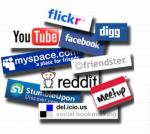
Time's Magazine's 2010 Person of the Year
According to Time Magazine editors the path to becoming the 2010 Man of the Year was quite simple. The nominee needed to:
- Be “very affable, … in the moment, … quick-witted”
- “Accomplish… something that’s never been done before.”
- Have “a warm presence, not a cold one.“
- Have a “quick smile” and don’t “shy away from eye contact.”
- Be one who can ‘think fast and talk fast, but want you to keep up.’
- Be one who “exudes not anger or social anxiety, but a weird calm”
- Be liked by one’s co-workers, and lastly
- ‘Create a new system of exchanging information’ – one ‘that has become both indispensable and sometimes a little frightening” — and it’s changing our lives “in ways that are innovative and even optimistic.”
Time’s choice for 2010 is Mark Zuckerberg. Unlike the year 2006, “You” weren’t selected again.
The person who garnered the most public, online votes and who especially matched all eight criteria is Julian Assange.
Now I realize that since 1979 when Time Magazine nominated Ayatollah Khomeini as the Man of the Year, the editors have limited their choice to people who are not controversial in the US. By that standard Assange and WikiLeaks clearly are out of the running. Zuckerberg, however, is not without his own flaws considering how Facebook got its start.
Look at reason #8 again. Is there not a strong case that whistleblower systems like WikiLeaks are ultimately more indispensable to humanity and yet also, simultaneously frightening, innovative and optimistic?
Would you rather have a society where there is a free, transparent and uncensored exchange of ideas? Or do your priorities rest with chatting across cyberspace with friends and playing Farmville?

 In my
In my 
